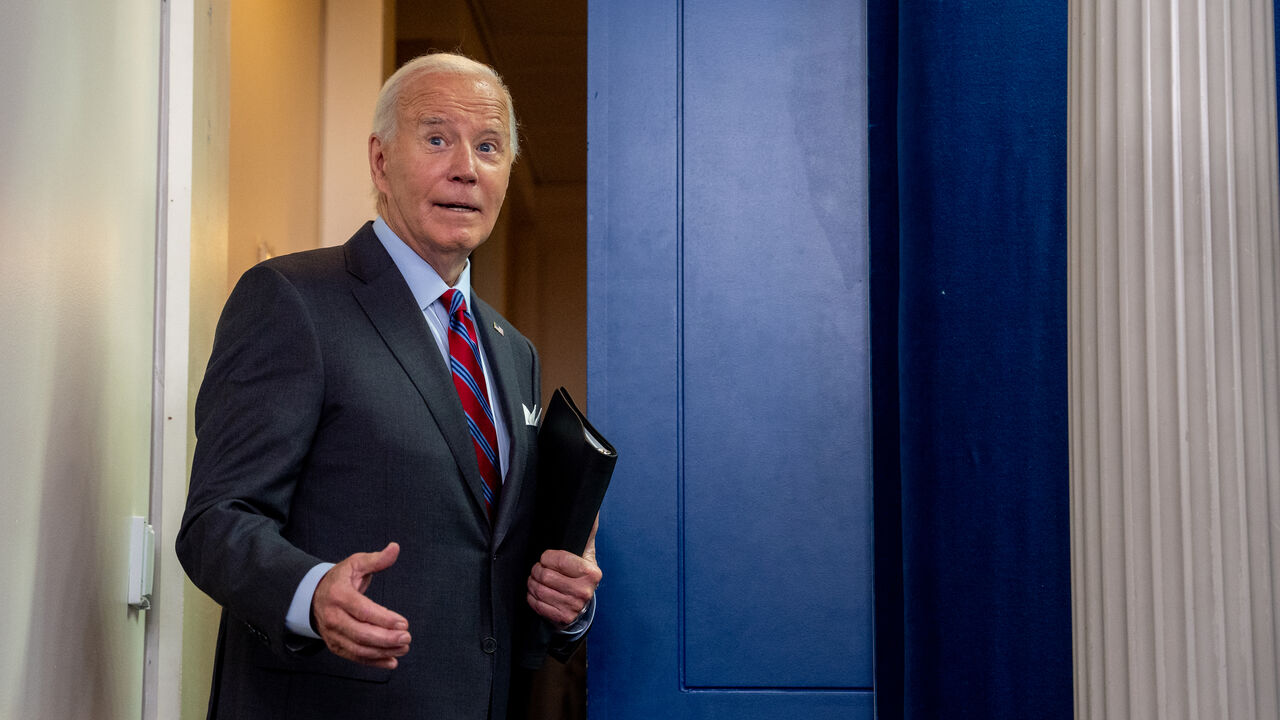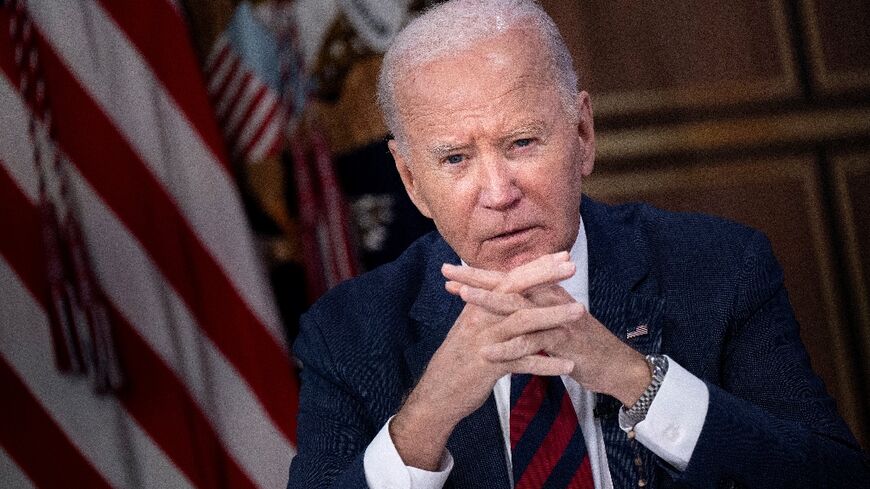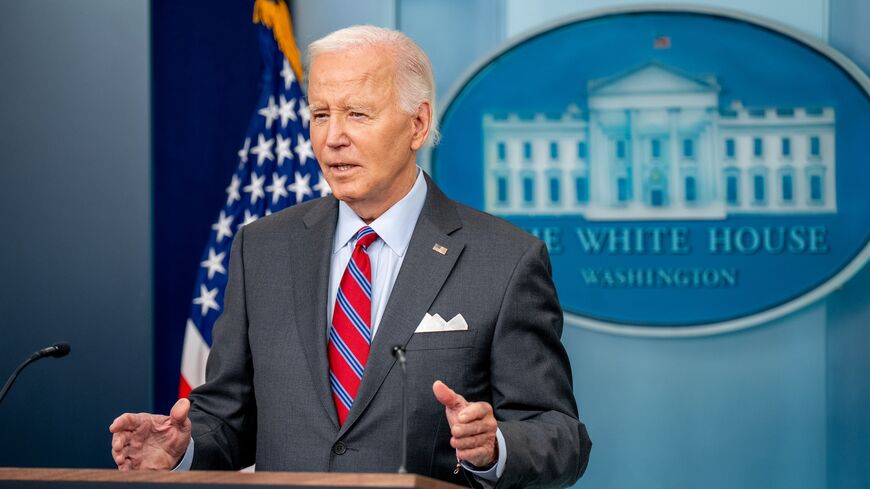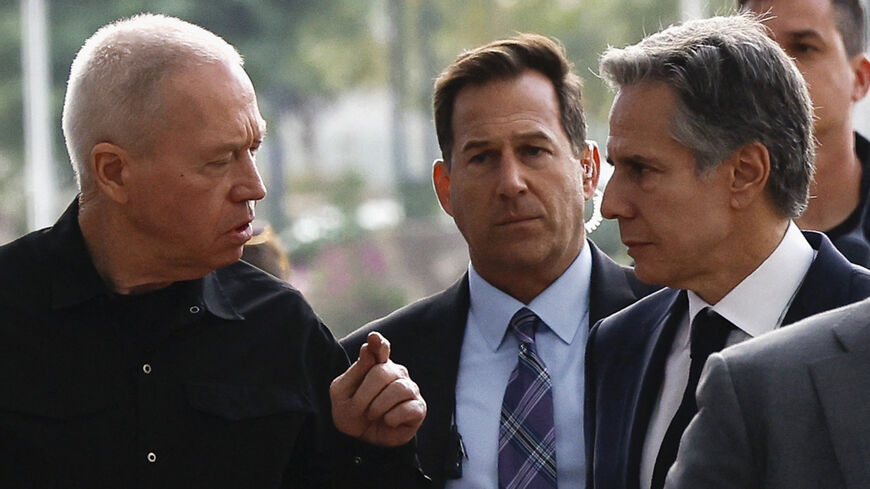Biden, Netanyahu speak as Israel plans retaliation against Iran
The two leaders spoke as the region awaits the Israeli military's response to Iran's latest missile barrage.

WASHINGTON — President Joe Biden spoke Wednesday with Israeli Prime Minister Benjamin Netanyahu for the first time in over a month as Israel plans its retaliation against Iran for last week’s ballistic missile attacks and widens its offensive against Hezbollah militants in Lebanon.
White House Press Secretary Karine Jean-Pierre described the call, which was the two leaders’ first since Aug. 21, as “direct and productive.”
A readout released by the White House after the call read, "The president affirmed Israel’s right to protect its citizens from Hezbollah, which has fired thousands of missiles and rockets into Israel over the past year alone, while emphasizing the need to minimize harm to civilians, in particular in the densely populated areas of Beirut." Biden also emphasized the "urgent need to renew diplomacy to release the hostages held by Hamas" and improve the humanitarian situation in Gaza, the statement read.
The call took place just a day after Netanyahu unexpectedly postponed Israeli Defense Minister Yoav Gallant's trip to Washington. Defense Secretary Lloyd Austin was scheduled to host Gallant at the Pentagon on Wednesday to discuss Israel’s promised retaliation for Tehran’s launching of close to 200 ballistic missiles toward Israel on Oct. 1. According to Israeli news outlets, Netanyahu insisted on a phone call with Biden before he would permit Gallant’s trip to move forward.
The abrupt postponement underscores the continued friction between the United States and its top Middle Eastern ally over its military conduct in the Gaza Strip and, more recently, Lebanon.
Biden has publicly warned Israel against striking Iranian nuclear sites in retaliation for last week’s attack, saying that any Israeli military response should be “proportional.” The president also called on Israel to consider “alternatives” to targeting Iranian oil facilities, a move that in a worst-case scenario could prompt Iran to close the Strait of Hormuz, through which 21% of the global crude trade passes.
US officials are urging Israel to exercise restraint amid fears of a broader regional war, but over the past year, their influence over Israeli decision-making has proven limited.
The Biden administration has repeatedly said Israel should be doing more to minimize civilian harm and expand humanitarian aid access in the Gaza Strip, where local health authorities say nearly 42,000 people have died in the year-long war. In Lebanon, where Israel began a ground invasion on Sept. 30, at least 1,041 people have been killed and more than 1.2 million are displaced, according to local authorities.
According to excerpts from journalist Bob Woodward’s upcoming book, “War,” Biden referred to Netanyahu as a “f---ing liar” after the Israeli military launched an operation in the southern Gaza city of Rafah. US officials feared an Israeli ground invasion would cause massive casualties among the roughly 1.4 million Palestinians sheltering in the densely populated border city.
Biden and Netanyahu have repeatedly clashed over a Gaza cease-fire following the president’s unveiling in late May of a three-stage proposal to end the deadly war and free the remaining hostages held by Hamas.
Biden said on Friday he was unsure whether Netanyahu was delaying a cease-fire in order to sway the upcoming US election, in which the Israeli leader is known to favor former President Donald Trump over Vice President Kamala Harris.
“No administration has helped Israel more than I have. None. None. None. And I think Bibi should remember that,” Biden said, referring to Netanyahu. “And whether he’s trying to influence the election, I don’t know — but I’m not counting on that.”
The Trump administration recognized Jerusalem as the capital of Israel and moved the US Embassy there, among other moves that angered Palestinians. Trump spoke with Netanyahu last week, congratulating him on the “determined and powerful operations Israel carried out against Hezbollah," the prime minister’s office said in a statement.
This developing story has been updated since initial publication.








